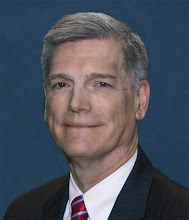
In establishing a tripartite national government, the Founding Fathers bequeathed us a very inefficient form of government. Friction between the legislative, executive and judicial branches slows the pace at which major changes proceed through our highly viscous political system. Fundamental changes in national direction arise over decades, not days. Economic and business columnist Robert J. Samuelson discusses this in his August 13, 2008 column, "The Great Energy Confusion", in The Washington Post. Samuelson observes, for example, that:
"...with a growing population and the existing stock of vehicles and buildings, even good policies and technological breakthroughs will only gradually shift our energy consumption. In the government's projection, renewable energy (wind, solar, some biomass) grows seven times faster than average energy use; still, it's only 7 percent of total consumption by 2030."He also notes that:
"any serious effort to curb oil use and greenhouse gases will require high energy prices -- whether imposed by the market or taxes -- to induce conservation and conversion to nonfossil fuels."Samuelson reminds us that, with the enormity of the energy challenge, it could take decades for the nation to change. This, he says, reflects the messy process by which democracies reach consensus. The process is, by design, a marathon, not a sprint.
Photo: Magdalena Lewy Boulet, one of three women marathoners representing the United States in the Beijing Olympics

Comments